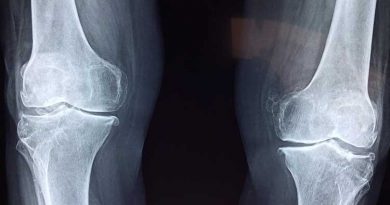Vitamin B12 deficiency symptoms: Does your tongue look like this? You could be at risk
VITAMIN B12 plays an essential role in the production of red blood cells, DNA and keeping the nerves healthy. Getting enough vitamin B12 is best gained through a diet rich in B12 foods and are best in animal products such as meat or cheese. Vegans are often vitamin B12 deficient due to its sources and if left untreated it could cause serious life-threatening health complications. The elderly, those taking long-term antacid drugs and people who are on the drug metformin for diabetes are also at major risk of having vitamin B12 deficiencies. Your tongue is a great way of telling you if you might be deficient from B12.
Having a tongue that is painful and with a beefy-red colour could be an indicator of B12 deficiencies.
The tongue may also swell up, known as glossitis, or it appears to be very smooth. Apart from the tongue, the mouth also holds keys to deficiencies and if you are getting mouth ulcers it’s normally a sign of deficiency.
Other symptoms of vitamin B12 deficiency symptoms include:
- Extreme tiredness
- Lack of energy
- Muscle weakness
- Disturbed vision
- Psychological problems
- Memory loss

Vitamin B12 helps with important functions in the body, including keeping the nervous system healthy
NHS
- Pale skin
- Pins and needles feeling
Having a deficiency of vitamin B12 is common and present itself in various ways, making it difficult to identify however it is important to make sure you are getting enough of the B12 vitamin as the health benefits are essential to general good health.
The NHS said: “Vitamin B12 helps with important functions in the body, including keeping the nervous system healthy.
“There are a number of problems that can lead to a vitamin B12 deficiency including pernicious anaemia that involves the immune system attacking healthy cells in the stomach, preventing the body to absorb vitamin B12 from the food you eat.
“This is one of the most common causes of vitamin B12 deficiency in the UK.”


There is also a link between depression and vitamin B12 deficiency.
Doctor Marilyn Glenville said: “The B vitamins are essential in the production of the neurotransmitters which control mood and behaviour.
“It’s required as a co-enzyme in the production of serotonin. Low levels of both serum folate and B12 are associated with a greater risk of depression.”
Doctors recommend raising low levels of vitamin B12 by improving your diet or taking supplements.
For those who are unable to get the recommended amount of vitamin B12 in their foods, Holland and Barrett suggest using a supplement.
“It will help towards reducing tiredness and fatigue, as well as the normal function of your immune and nervous system,” they added.
Source: Read Full Article



